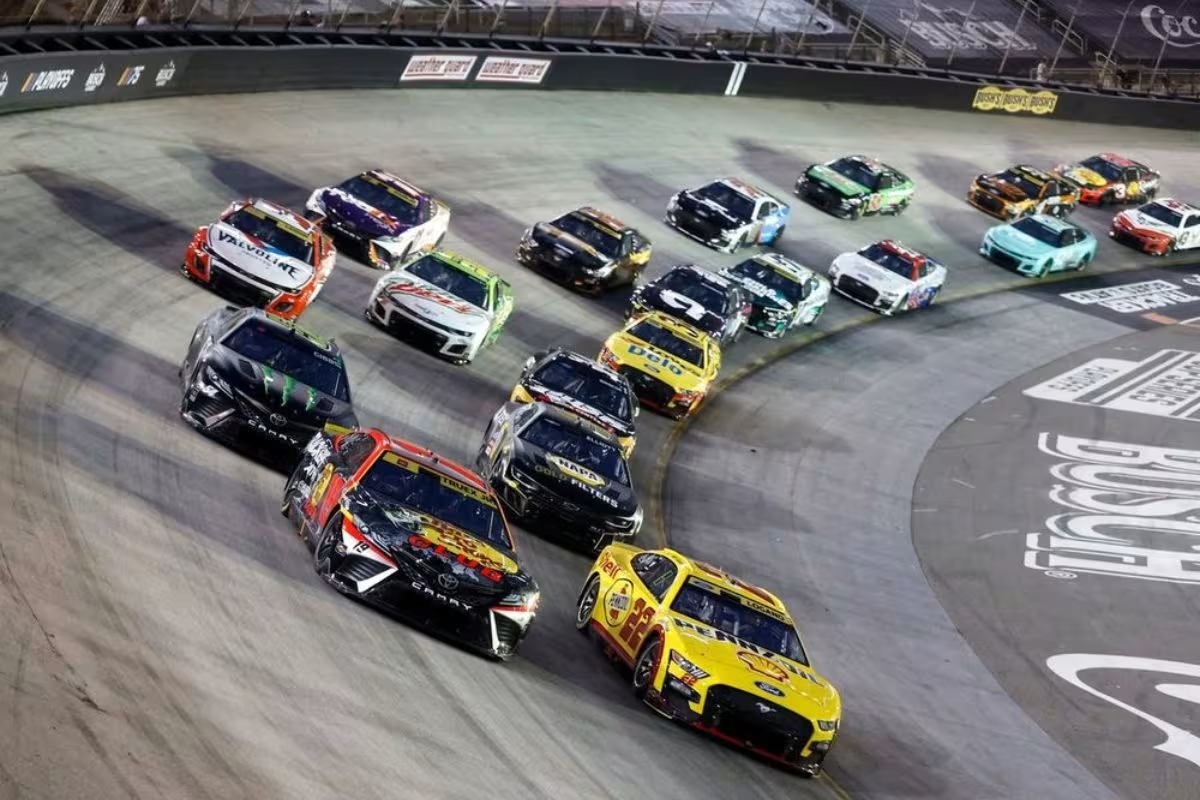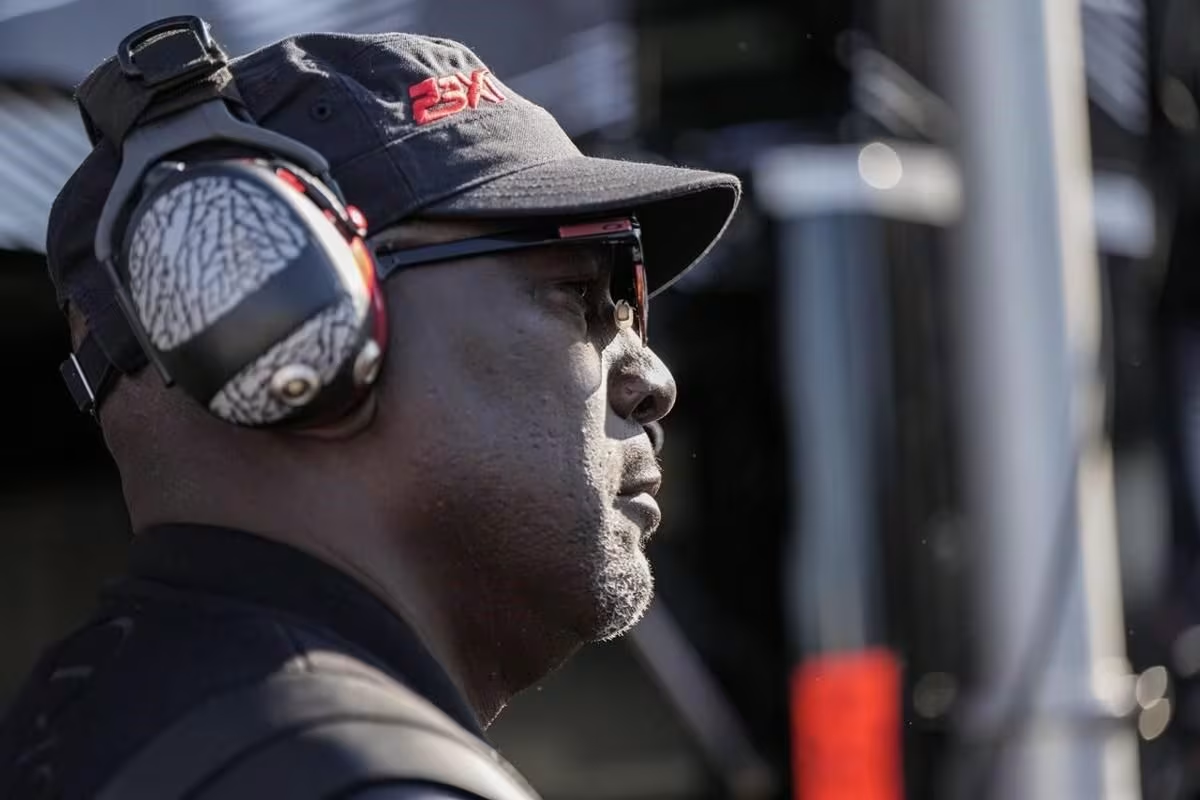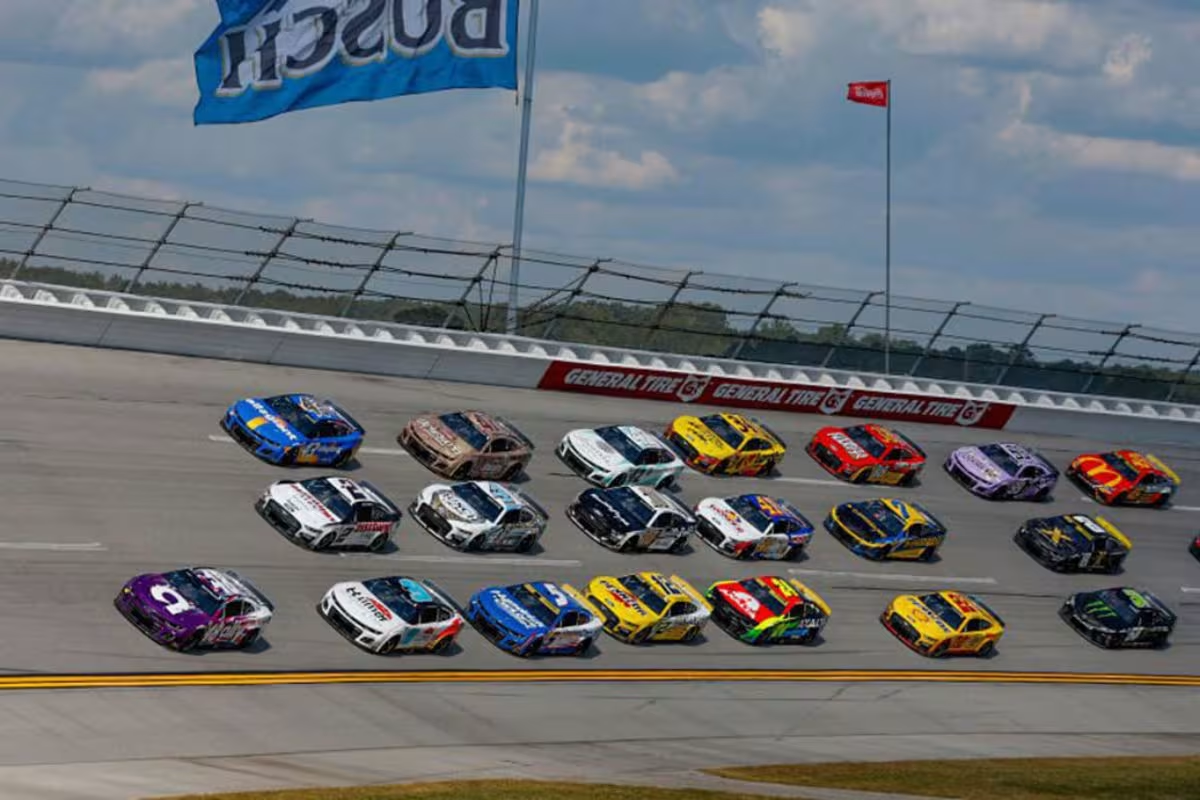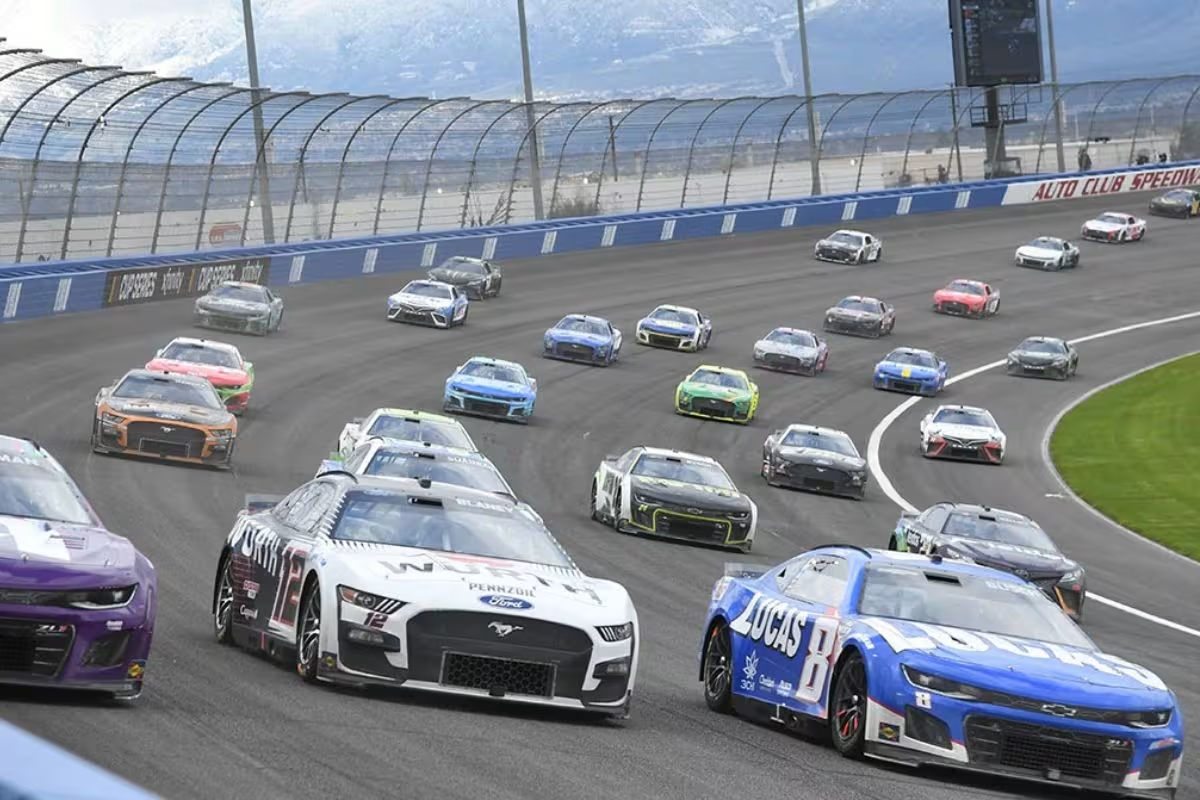NASCAR Teams Snub Michael Jordan: The recent refusal of NASCAR teams to collaborate with Michael Jordan raises crucial questions about the dynamics of pride versus progress within the sport. This decision appears to stem from a desire to maintain control and uphold traditional structures, even as the potential benefits of partnership with a figure like Jordan could lead to notable advancements for NASCAR. As tensions during ongoing legal challenges, one must consider whether this stance is a tactical misstep or a necessary assertion of autonomy, and what consequence it holds for the future of the racing industry.
Key Highlights
- Some NASCAR teams resist collaboration with Michael Jordan due to ongoing power struggles over charter agreements, prioritizing individual interests over collective progress.
- The refusal to collaborate reflects deeper tensions within NASCAR, where loyalty to traditional team dynamics clashes with the potential for innovative partnerships.
- Financial constraints and fear of losing charters create a reluctance among team owners to embrace change, impacting their willingness to work with new stakeholders.
- Ongoing legal disputes highlight the challenges of cooperation, as teams navigate the precarious balance between pride in their operations and the need for progress.
- The situation underscores a critical moment in NASCAR’s evolution, where self-interest may hinder the sport’s growth and adaptation to new influences like Jordan.
Background of the Situation
In the evolving landscape of NASCAR, the backdrop of the current situation is marked by a considerable power struggle among team owners regarding the charter agreement. The charter system, crucial to the financial structure of the sport, has recently become a main point of contention, particularly with its looming expiration at the end of the year. Last month, a substantial majority of teams—13 out of 15—opted to sign a seven-year extension, albeit amid widespread dissatisfaction concerning the terms. This decision highlights a collective compliance to the sanctioning body’s demands, which emerged after protracted negotiations lasting two years.
Contrastingly, 23XI Racing and Front Row Motorsports have adopted a defiant stance, resisting the pressure to formalize their agreements. Their refusal to sign indicates a deeper rift within the community of team owners and raises questions about the implications of such dissent. This is not merely a matter of contractual it embodies broader themes of autonomy, equity, and the dynamics of power within NASCAR.
The ongoing lawsuit initiated by these two teams symbolizes a crucial moment in NASCAR’s governance. It highlights the tension between individual team interests and the collective agreements cultivated by the sport’s hierarchical structure.
As the negotiation landscape evolves, the actions taken by 23XI Racing and Front Row Motorsports may inspire a reevaluation of the existing charter system, potentially redefining power dynamics and operational structures in NASCAR for years to come.

Potential Outcomes of the Lawsuit
The lawsuit initiated by 23XI Racing and Front Row Motorsports could precipitate considerable changes within NASCAR, potentially leading to a protracted legal battle or a tactical settlement that offers more favorable terms.
The consequence of such a legal confrontation could extend far beyond the immediate parties involved, reshaping the landscape of the sport for years to come. If the lawsuit advances to trial, it could expose underlying tensions within the NASCAR community, inviting examination into the governance and decision-making processes that have long governed team collaborations and partnerships.
“It’s just these two conflicting sides. There isn’t like a common ground that I can see where you can just say, ‘Hey, let’s just meet in the middle here. Let’s just, you know, you give a little bit, I’ll give a little bit.’ I mean, for two years, they’ve been at loggerheads and it hasn’t come apart and they’re still butting heads. From day one when negotiations first started, it was contentious and it hasn’t eased up any sense. I just don’t see how this doesn’t end up going into a jury trial, which is what 23XI is seeking.”-(jordan bianchi)
Alternatively, a settlement could provide a pathway to a more equitable arrangement that benefits both established teams and newcomers like 23XI Racing. This could lead to a reevaluation of the terms under which teams operate, influencing sponsorship deals, revenue sharing, and access to resources.
However, teams that have already agreed to the proposed terms may find themselves in an unstable position. Their commitments could be undermined, leading to divisions within the ranks and encouraging an environment of uncertainty.
The potential outcomes of this lawsuit are noteworthy, as they could establish precedents that redefine competitive dynamics within NASCAR. Should the court rule in favor of the plaintiffs, it may empower other teams to challenge existing agreements, catalyzing a shift towards a more inclusive and equitable framework.
Conversely, a ruling favoring NASCAR could solidify the status quo, entrenching existing power structures and stifling innovation in the sport. Ultimately, the lawsuit holds the potential to alter the path of NASCAR, impacting drivers, teams, and fans alike.
Inevitability of the NASCAR Lawsuit
Recent events leading up to the lawsuit suggest that the conflict within NASCAR was approaching a breaking point. The years of simmering tension, exacerbated by a contentious negotiation process, ultimately culminated in a legal confrontation that seemed both foreseen and unavoidable.
In early September, NASCAR presented its teams with a take-it-or-leave-it offer just before the playoffs began, a move that was perceived as both unilateral and heavy-handed. The initial deadline for acceptance—a mere hour—was later extended to midnight following widespread protest from team owners, underscoring the depth of dissatisfaction with NASCAR’s approach.
The crux of the conflict lies in the alleged coercion employed by NASCAR; threats were reportedly made regarding the potential loss of charters for noncompliance with the new agreement. This pressure tactic has not only galvanized resistance among team owners but has also instigated a broader evaluation of power dynamics within the organization.
Teams like 23XI Racing and Front Row Motorsports are now positioned to challenge the status quo, accepting the risks associated with their defiance.
The inevitability of the lawsuit stems from this charged atmosphere, where pride and principle appear to be at odds with the operational realities of NASCAR. As the governing body and its teams wrestle with fundamental questions of authority and autonomy, the legal proceedings that have emerged reflect a critical juncture in the sport’s evolution.
The implications of this conflict extend far beyond the courtroom, shaping the future landscape of NASCAR itself.
Legal Representation and Demands
Appointing antitrust attorney Jeffrey Kessler highlights the seriousness with which 23XI Racing and Front Row Motorsports are approaching their legal battle with NASCAR. Kessler’s track record in notable antitrust cases, including pivotal moments in the NFL and women’s soccer, suggests that these teams are not merely seeking legal recourse but are also poised to reshape their operational landscape within the sport.
The demands articulated by 23XI Racing and Front Row Motorsports underscore their intent to secure a more favorable position in NASCAR’s evolving framework. Their requests can be summarized as follows:
| Demand | Rationale |
|---|---|
| Higher share of revenue from new media rights | To ascertain financial sustainability and growth |
| Permanent charters | To protect investments and secure long-term viability |
| Participation in decision-making processes | To influence key operational and tactical directions |
| Share of emerging business opportunities | To reduce dependency on sponsorship revenue |
| Settlement to avoid prolonged litigation | To expedite resolution and focus on competitive performance |
While the likelihood of all demands being met remains uncertain, NASCAR’s desire to avoid a protracted legal dispute may catalyze negotiations. The potential for compromise exists, and both parties may need to weigh concessions. As the landscape of NASCAR continues to evolve, the outcomes of this legal engagement could redefine the operational dynamics between teams and the sanctioning body, setting precedents for future interactions.
Responses from Team Owners
Responses from team owners reflect a complex interplay of pressure and pragmatism in the face of NASCAR’s charter proposals. As the sport navigates its financial landscape, team owners have found themselves cornered, compelled to agree to terms that may not necessarily align with their long-term interests. The consequences of refusing to sign were too considerable, leading to a consensus driven by necessity rather than collaboration.
Key sentiments from team owners include:
- Financial Constraints: The potential loss of charters could result in crippling financial repercussions.
- Time Pressure: Owners often face tight deadlines to finalize agreements, leaving little room for negotiation.
- Long-term Commitments: Existing sponsorship and driver contracts create extra layers of complexity in decision-making.
- Fear of Retaliation: There’s a noticeable concern about the repercussions of dissent within a tightly-knit community.
“If you poll the owners in the sport, I can tell you overwhelmingly, they’re going to tell you that they did this under duress because there’s long-term sponsorship agreements, long-term driver agreements, (manufacturer) agreements, commitments to crew chiefs and engineers. It takes a lot of courage, or stupidity, to say no at that point. You have six hours to sign a deal. In my case, I don’t know what it was gonna cost me if I lose two charters in my race team, but it’s a lot of money.”-( Bob Jenkins)
As the NASCAR lawsuit approaches, the possibility of financial transparency might spark more unrest among the teams. If any inconsistencies are found, the unity seen in current agreements could break apart, leading to a reevaluation of power within the sport. NASCAR is at a critical point, and the decisions made by team owners will significantly influence its future direction.
News in Brief: NASCAR Teams Refuse to Collaborate With Michael Jordan
ALSO READ: NASCAR’s France Family Sabotages Michael Jordan’s Ambitions to Acquire SHR!



